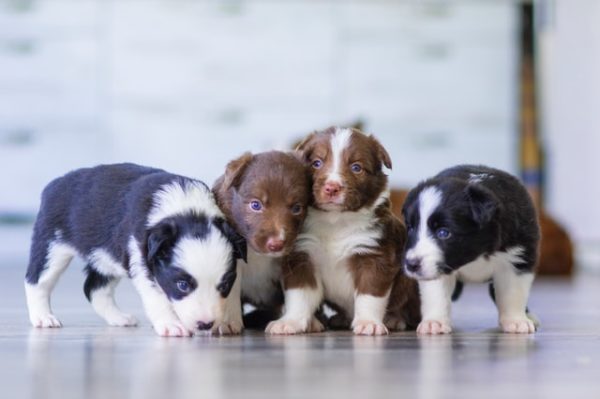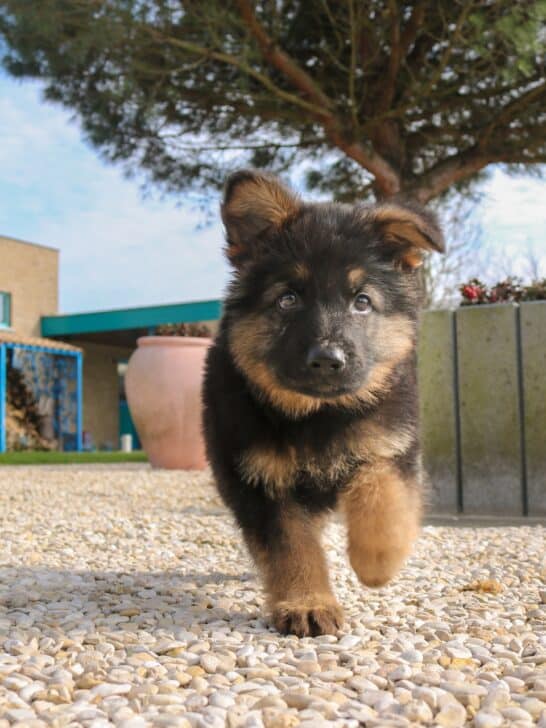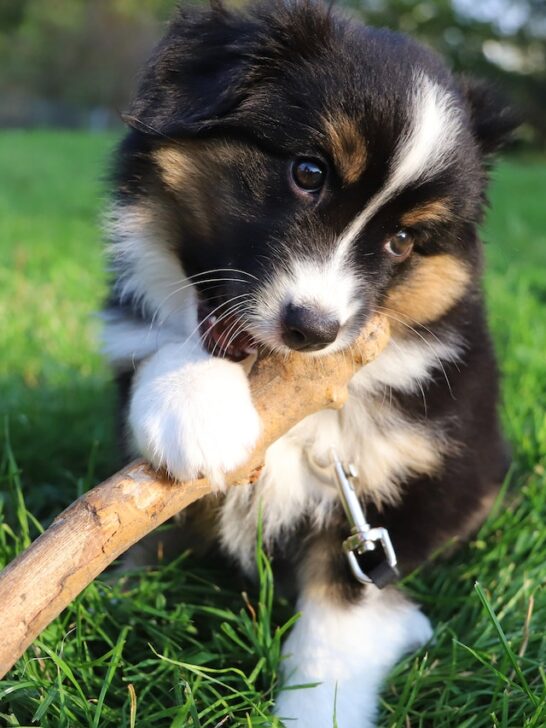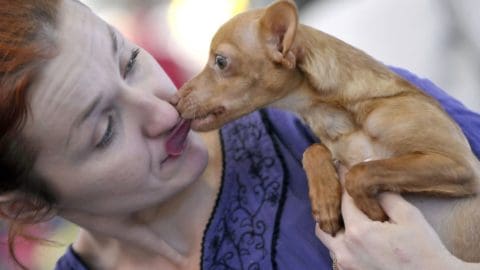Everything You Need To Know About Puppies And Their Littermates. Can Puppies Recognize Their Siblings?
If you have ever purchased a puppy from a breeder, then you know what an amazing experience it can be.
You get to visit the puppies, and pick one from the litter that will go home with you and become your best friend for life.
When I was a young child, and we brought home our first family dog in this way, I was so excited to take her home and welcome her into our family.
Many years later, as an adult, when we picked up our second dog, that excitement filled my heart again.
But this time, as I held that small puppy in my arms as we drove away, I noticed the mother dog looking onwards as our car pulled down the drive.
It suddenly dawned on me that taking a puppy from its littermates, mother and all it has known since it was born could be a traumatic experience.
It made me wonder if dogs miss their siblings or pine for their littermates.

Rearing Puppies
When puppies are born, they will be completely dependent on their mother. This is also the case for the first few months of the puppy’s life, as they get their sustenance, care and support from their mother.
As they grow a little, and become aware of the world around them, they learn about their surroundings, and develop social skills whilst being in contact with the rest of the litter and the mother dog.
This time in a pup’s life is paramount to its development. In this period, a puppy will learn how to play, act and behave with other dogs, learning that biting is wrong, and when to play rough and when not too.
This development and socialization stage often lasts from 6-12 weeks, which is why many breeders will not let the puppies go before then.
During this time, they will be introduced to human contact, and will learn how to behave with them, too.
After this time, the puppies are safe to go to a new home.
However, if you separate puppies from the mother too soon, there can be many behavioral and health consequences such as separation anxiety, decreased learning ability, weight loss, poor physical health, and even aggression.
So, the timing has to be right, and they should only leave the litter after 8-12 weeks old.
Do Puppies Miss Their Siblings?
As we all know, dogs are pack animals, and are family orientated. They sleep with their pack, eat with their pack and play with the pack.
So, do they miss this connection with their littermates once they go to their new home?
There is a lot of qualitative evidence to show that dog siblings can recognize and remember each other upon meeting again, but there is not a lot of research data to suggest that they miss their littermates once they have been separated.
For the most part, dogs are very family orientated, yes, but they accept their new owners as their family members fairly early on.
When you adopt a dog, or buy one from a breeder, after a few days they will start to see you and your family members as part of their pack, and one of their own.
Depending on how long the puppies were with their littermates, they may recognize or remember them better. Dogs do have long term memories, but most of this comes from smell.
Dogs are able to recognize a person through their scent, as it will smell familiar to them.
So, it’s more about them smelling their littermates upon seeing them again, and remembering their connection with them, rather than pining after them when they are gone.

Should I Feel Guilty About Taking My Puppy Away From Its Littermates?
As long as the timing is right, and you properly socialize and care for your puppy, you should not feel bad about taking them from their littermates and into your home.
Puppies need to stay with their litter for at least the first 8 weeks of their lives, as they will learn social and behavioral skills from their mother and siblings.
Removing them too soon can cause a variety of health problems and behavioral issues that can be hard to rectify.
However, when you take a puppy into your home, you will notice that they take a little while to adjust, and may cry and whine throughout the night.
This does not mean that you are some evil mastermind that has stolen them away from their family, and that they want to go back to their litter.
What it means is that this change is a little distressing for them, and scary for them.
Puppies are not used to being alone or sleeping by themselves, and it can take some getting used to. With lots of care and attention, they will quickly adjust to their new lives.
For instance, it is beneficial to get a puppy a sleeping mate.
These toys are usually soft and snuggly, and have a heartbeat, so it feels like they are once again sleeping with their litter.
This can help the puppy settle and drift off to sleep at night during those first pivotal days and weeks in your home.

Is It A Good Thing?
Humans are emotional creatures. It is all too easy for us to project our feelings onto our pets because they cannot speak for themselves. We just assume that they feel the same as us in certain situations.
But, just because you would feel sad if taken from your siblings as a child, does not mean that dogs do too.
Sometimes, it is actually more beneficial to separate dog siblings as it can lead to some behavioral problems later in life.
They may become aggressive and territorial around one another, and can become fixated on each other, unable to have healthy relationships with other animals or dogs.
When littermates are closely bonded, they will not be able to interact well with other dogs, and cannot create that close bond with humans either.
Dogs who are littermates can also become reliant on each other, and will be very distressed if one does something without the other, especially if one passes away before the other one.
Therefore, keeping them together can actually be very hard on their behavioral and social development.
Summary
To summarize, no, puppies do not miss their siblings when they are separated from the litter.
Dogs do not pine for their siblings, but they may recognize their scent and feel a sense of familiarity if they are reunited in the future.
They will struggle to adjust to life at first in a new environment, but this is completely normal.
As long as you give them proper care, attention and help them adjust to their new home, your puppy will be happy and healthy!






























